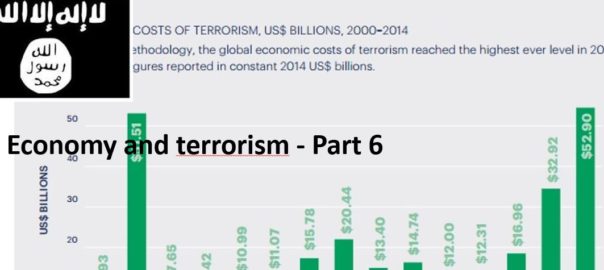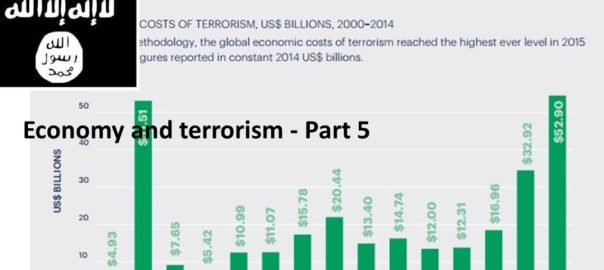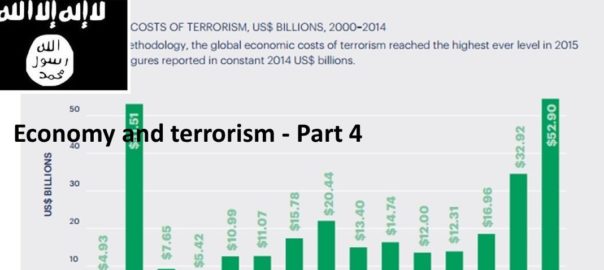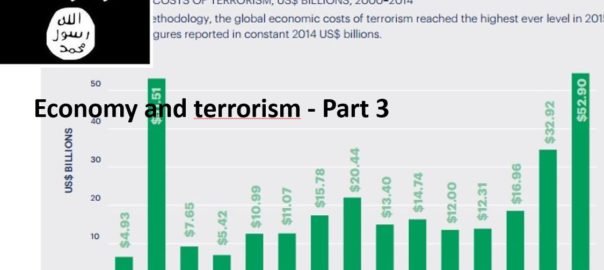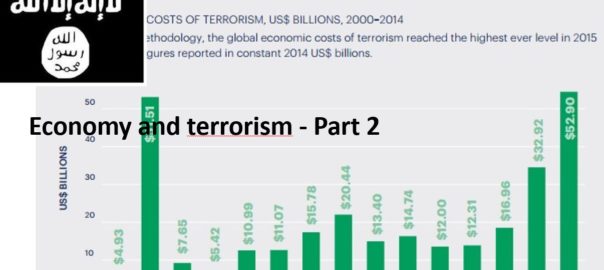Il recente fermo a Bari di Athmane Touami, alias Tomi Mahraz riapre il dibattitto sul ruolo strategico della criminalità organizzata nel fornire documenti falsi ai terroristi. Touami ha avuto un ruolo fondamentale negli attentati a Parigi nel 2015, in particolar modo al Bataclan. Continue reading
Category Archives: Terrorism
EU economic losses in the haze of jihad. Impacts on cryptocurrency businesses (part 6) – by Daniele M. Barone
The exploitation of cryptocurrency for terrorism purposes is an evolving threat. Continue reading
EU economic losses in the haze of jihad. Still stuck in an affordable blame game on content moderation (part 5) – by Daniele M. Barone
In November 2020, following the terrorist attacks in France, Germany, and Austria, the European Council[i] Continue reading
EU economic losses in the haze of jihad: Globalization challenges (part 4) – by Daniele M. Barone
As analyzed in the previous articles, the impact of a terrorist attack can affect a country’s peace dividends[i] and, as a consequence, its whole economy.[ii] Continue reading
EU economic losses in the haze of jihad: Government spending: the political costs of counter-terrorism (part 3) – by Daniele M. Barone
Unsurprisingly, the share of government expenditure grows when terror attacks occur as public spending on defense and security increases.[i] Continue reading
Brahim Aouissaoui’s radicalization might have very well occurred back in Tunisia – by Giovanni Giacalone
In the early morning of October 29th, 21-year-old Tunisian citizen Brahim Aouissaoui entered the Notre-Dame Cathedral on Avenue Jean Medecin in Nice, stabbed three people to death, and partially beheaded one of them, an elderly woman. Continue reading
Lugano attack: a new role for women in European jihad? – by Maria Chr. Alvanou
The deadly incident that has taken place in Lugano-Switzerland on November 23d is under investigation as a terroristic one, especially because of the reported “jihadi background” of the suspect[1]. As the authorities continue their research there are some first comments and points to take under consideration. Continue reading
EU economic losses in the haze of jihad: The impacts on domestic businesses (part 2) – by Daniele M. Barone
Researches and surveys, so far, highlight how the negative impact of jihad on the EU economy creates a trickle-down effect on people and fields of business that can vary with the maturity of an economy but also with the nature and target of the attack. Continue reading
EU economic losses in the haze of jihad: The impacts on domestic businesses (part 1) – by Daniele M. Barone
Jihadist terrorist attacks perpetrated on European soil during the last months have heightened fears that a new terror wave could be building across the EU.[i] Continue reading
Covid-19 e (neo) Brigate Rosse: prime riflessioni – by Diego Bolchini
Nei giorni 10 e 11 novembre diverse agenzie, organi di stampa nazionali e locali hanno rilanciato la notizia di lettere minatorie a firma di sedicenti appartenenti alle Brigate rosse. Continue reading
Terror in Vienna: a risk assessment perspective – by Jörg Peschak
On the night before the second lockdown on November 2nd, 2020 at 8 pm, Austria’s capital was hit by a terrorist attack. On the macrolevel, it is the latest of a series of events that began in France with the republication of the caricatures of Charly Hebdo followed by the beheading of a teacher for showing the caricatures and an attack on people at the cathedral in Nice. Now the scene moved to Vienna. But why Austria? Could it have been prevented? Continue reading
Terrorismo islamista: Francia sotto pressione – by G. Giacalone, M. Lombardi, M. Maiolino
La linea del tempo
La barbara uccisione del docente di educazione civica, Samuel Paty, mostra una serie di fattori dei quali non si può non tener conto se si vuole andare oltre cronache e sensazionalismi per capire in che direzione si sta evolvendo il terrorismo di stampo islamista in Europa e in particolare in Francia. Continue reading

